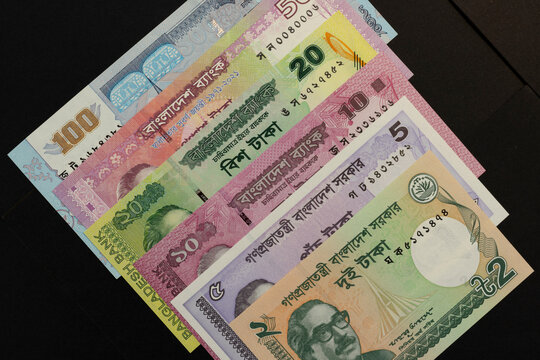Bangladesh is grappling with a deepening currency crisis as the country reels from a turbulent political transition. The removal of longtime Prime Minister Sheikh Hasina in August 2024 and the installation of an interim government led by Nobel Peace Prize laureate Muhammad Yunus have sent shockwaves through the economy, which now faces dwindling foreign reserves, soaring inflation, and a fragile banking sector.
Foreign currency reserves have plunged from $48 billion in 2021 to just over $18 billion, a level barely sufficient to cover a few months of imports. This decline has intensified pressure on the taka, raised the cost of living, and limited the government’s ability to manage its external obligations.
The crisis is felt most acutely at the consumer level. Inflation hit 11.66% in July 2024, with food prices reaching a 12-year high. The surge in basic commodity costs has disproportionately affected low-income households, sparking discontent and growing public frustration.
The banking sector has also come under strain. Liquidity shortages, low capital buffers, and a surge in non-performing loans have weakened the financial system. The political shift triggered a leadership vacuum at the central bank, with the resignation of the governor and several deputy governors, further destabilizing the sector.
Adding to the turmoil, Bangladesh’s vital ready-made garment (RMG) industry—responsible for the bulk of the country’s export earnings—has seen revenues drop by over 13% to $3.76 billion, marking the lowest figure in more than two years. The decline is attributed to both international demand contraction and local disruptions caused by strikes and political protests.
The unrest has not spared remittance flows either. Overseas remittances fell by 4.4% in the last quarter, compounding the foreign exchange crunch. Business groups estimate that daily economic losses due to blockades and unrest amount to approximately 65 billion takas, or around $588 million.
While the interim government is trying to stabilize the economy, its path is steep. Efforts are being made to secure international funding, implement structural reforms, and restore investor confidence. Some foreign institutions have shown willingness to increase investments, especially in green energy and infrastructure. However, credit rating agencies have expressed concern over the ongoing political instability and economic uncertainties.
As the nation eyes general elections expected in late 2025 or early 2026, the challenge for the interim leadership is immense: to steer the country through a perilous period of economic fragility while maintaining public trust and political order.
The coming months will be critical in determining whether Bangladesh can weather this crisis or slide deeper into economic distress.


